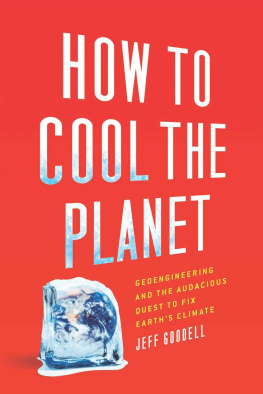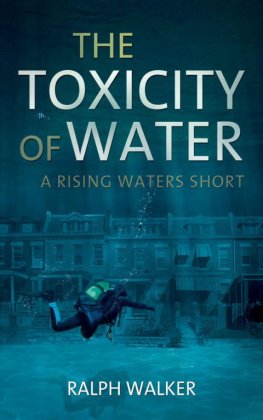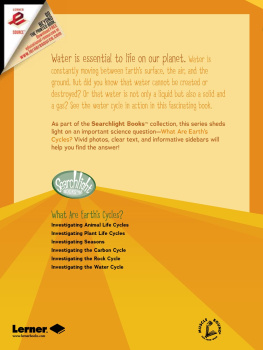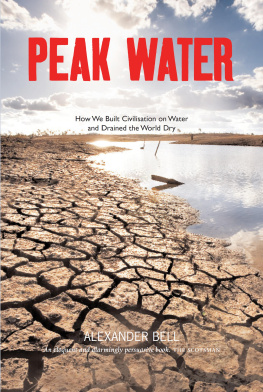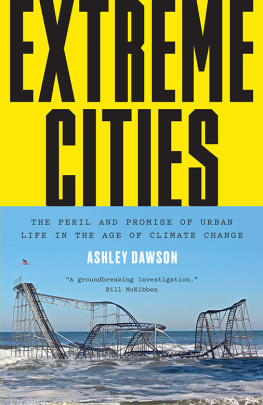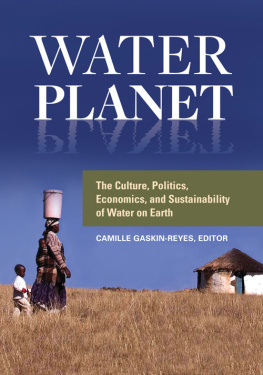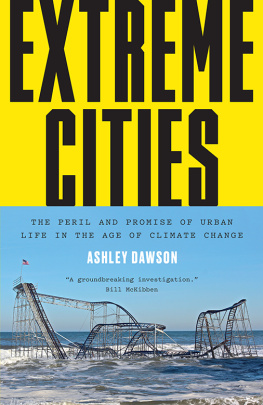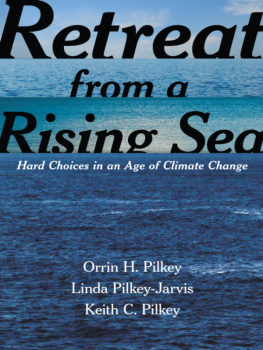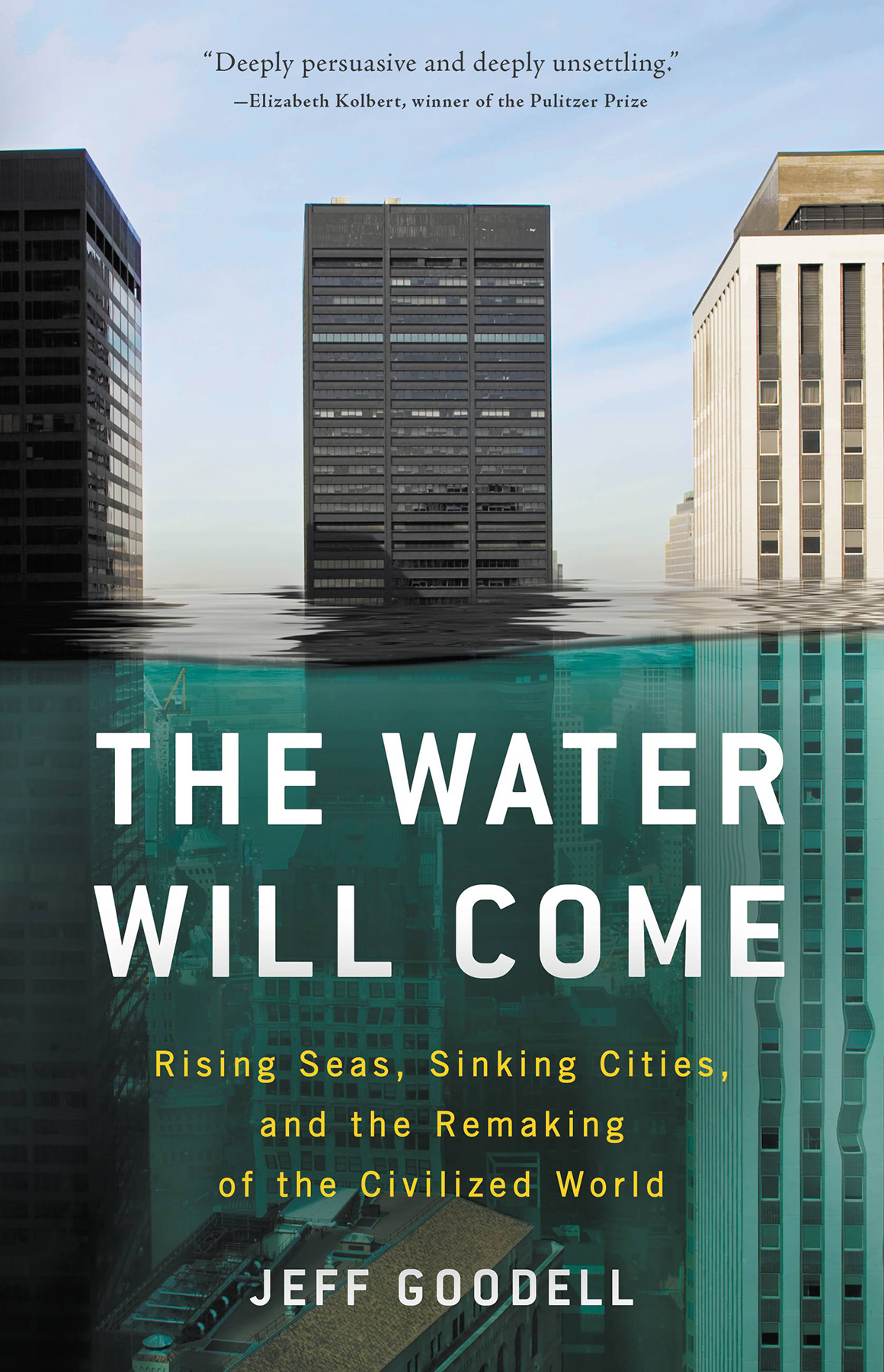Thank you for buying this ebook, published by HachetteDigital.
To receive special offers, bonus content, and news about ourlatest ebooks and apps, sign up for our newsletters.
Copyright 2017 by Jeff Goodell
Hachette Book Group supports the right to free expression and the value of copyright. The purpose of copyright is to encourage writers and artists to produce the creative works that enrich our culture.
The scanning, uploading, and distribution of this book without permission is a theft of the authors intellectual property. If you would like permission to use material from the book (other than for review purposes), please contact permissions@hbgusa.com. Thank you for your support of the authors rights.
Little, Brown and Company
Hachette Book Group
1290 Avenue of the Americas, New York, NY 10104
littlebrown.com
twitter.com/littlebrown
facebook.com/littlebrownandcompany
First ebook edition: October 2017
Little, Brown and Company is a division of Hachette Book Group, Inc. The Little, Brown name and logo are trademarks of Hachette Book Group, Inc.
The Hachette Speakers Bureau provides a wide range of authors for speaking events. To find out more, go to hachettespeakersbureau.com or call (866) 376-6591.
The publisher is not responsible for websites (or their content) that are not owned by the publisher.
ISBN 978-0-316-26023-7
E3-20170916-JV-PC
H OW TO C OOL THE P LANET
B IG C OAL
O UR S TORY
S UNNYVALE
T HE C YBERTHIEF AND THE S AMURAI
For Milo, Georgia, and Grace
Theres always that moment in a countrys history when it becomes obvious the earth is less manageable than previously thought.
Jim Shepard, The Netherlands Live with Water
A FTER THE HURRICANE hit Miami in 2037, a foot of sand covered the famous bow-tie floor in the lobby of the Fontainebleau Hotel in Miami Beach. A dead manatee floated in the pool where Elvis had once swum. Most of the damage came not from the hurricanes 175-mile-an-hour winds, but from the twenty-foot storm surge that overwhelmed the low-lying city. In South Beach, historic Art Deco buildings were swept off their foundations. Mansions on Star Island were flooded up to their cut-glass doorknobs. A seventeen-mile stretch of Highway A1A that ran along the famous beaches up to Fort Lauderdale disappeared into the Atlantic. The storm knocked out the wastewater-treatment plant on Virginia Key, forcing the city to dump hundreds of millions of gallons of raw sewage into Biscayne Bay. Tampons and condoms littered the beaches, and the stench of human excrement stoked fears of cholera. More than three hundred people died, many of them swept away by the surging waters that submerged much of Miami Beach and Fort Lauderdale; thirteen people were killed in traffic accidents as they scrambled to escape the city after the news spreadfalsely, it turned outthat one of the nuclear reactors at Turkey Point, an aging power plant twenty-four miles south of Miami, had been heavily damaged by the surge and had sent a radioactive cloud floating over the city.
The president, of course, said that Miami would be back, that Americans did not give up, that the city would be rebuilt better and stronger than it had been before. But it was clear to those not fooling themselves that this storm was the beginning of the end of Miami as a booming twenty-first-century city.
All big hurricanes are disastrous. But this one was unexpectedly bad. With sea levels more than a foot higher than theyd been at the dawn of the century, much of South Florida was wet and vulnerable even before the storm hit. Because of the higher water, the storm surge pushed deeper into the region than anyone had imagined it could, flowing up drainage canals and flooding homes and strip malls several miles from the coast. Despite newly elevated runways, Miami International Airport was shut down for ten days. Salt water shorted out underground electrical wiring, leaving parts of Miami-Dade County dark for weeks and contaminated municipal drinking-water wells, leaving thousands of displaced people scrambling for bottled water that was air-dropped by the National Guard. In soggy neighborhoods, mosquitoes carrying Zika and dengue fever viruses hatched (injecting male mosquitoes with the Wolbachia bacteria, which public health officials had once hoped would inhibit the mosquitoes ability to transmit the viruses, had failed when the Aedes aegypti mosquitoes that carry the diseases developed immunity to the bacteria). In Homestead, a low-lying working-class city in southern Miami-Dade County that had been flattened by Hurricane Andrew in 1992, thousands of abandoned homes were bulldozed because they were deemed a public health hazard. In Miami Shores, developers approached city officials with proposals to buy out entire blocks of waterlogged apartments, then dredge the streets and turn them into canals lined with houseboats. But financing for these projects never materialized.
Before the storm hit, damage from rising seas had already pushed city and county budgets to the brink. State and federal money was scarce too, in part because Miami was seen by many Americans as a rich, self-indulgent city that had ignored decades of warnings about building too close to the water. Attempts had been made to armor the shore with seawalls and elevate buildings, but only a small percentage of the richest property owners took protective action. The beaches were mostly gone too. The Feds decided they couldnt afford to spend $100 million every few years to pump in fresh sand, and without replenishment, the ever-higher tides carried the beaches away. By the late 2020s, the only beaches that remained were privately maintained oases of sand in front of expensive hotels. The hurricane took care of those, leaving the hotels and condo towers perched on limestone crags. Tourists disappeared. After the hurricane, the city became a mecca for slumlords, spiritual healers, and lawyers. In the parts of the county that were still inhabitable, only the wealthiest could afford to insure their homes. Mortgages were nearly impossible to get, mostly because banks didnt believe the homes would be there in thirty years.
Still, the waters kept rising, nearly a foot each decade. Each big storm devoured more of the coastline, pushing the water deeper and deeper into the city. The skyscrapers that had gone up during the boom years were gradually abandoned and used as staging grounds for drug runners and exotic-animal traffickers. Crocodiles nested in the ruins of the Frost Museum of Science. (Historians dryly noted that the namesake of the museum, billionaire Phillip Frost, had been a climate change skeptic.) Still, the waters kept rising. By the end of the twenty-first century, Miami became something else entirely: a popular diving spot where people could swim among sharks and barnacled SUVs and explore the wreckage of a great American city.
That is, of course, merely one possible vision of the future. There are brighter ways to imagine itand darker ways. But I am a journalist, not a Hollywood screenwriter. In this book, I want to tell a true story about the future we are creating for ourselves, our children, and our grandchildren. It begins with this: the climate is warming, the worlds great ice sheets are melting, and the water is rising. This is not a speculative idea, or the hypothesis of a few wacky scientists, or a hoax perpetrated by the Chinese. Sea-level rise is one of the central facts of our time, as real as gravity. It will reshape our world in ways most of us can only dimly imagine.


